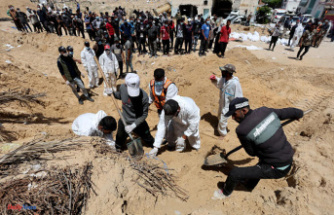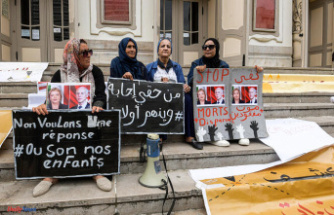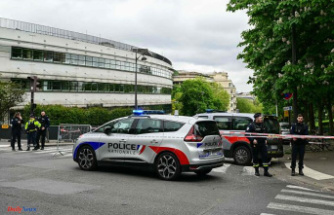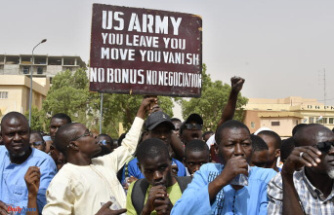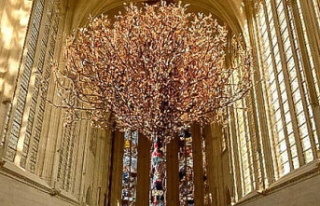Criticized since the start of the war in Ukraine for its proximity to Moscow, South Africa must quickly find a way out as the International Criminal Court, based in The Hague, issued an arrest warrant against the Russian President Vladimir Putin for the war crime of "deporting" Ukrainian children. However, Pretoria is due to host a Brics summit in August – a group of countries bringing together South Africa, Brazil, China, India and Russia. A member of the ICC, a signatory to the Rome Statute since 1998, the country is theoretically supposed to arrest the Russian president if he enters its territory.
The ruling ANC believes it has found the solution and has suggested that the country leave the ICC, President Cyril Ramaphosa announced on Tuesday (April 25). "The ruling party has made up its mind, considering it prudent for South Africa to withdraw from the ICC," he said at a press conference following a visit by Finnish President Sauli Niinistö. .
The African National Congress had met over the weekend. The question of whether South Africa will arrest Putin is "under study", added the head of state. According to Cyril Ramaphosa, the ANC's decision to withdraw from the ICC was made "largely" due to what is perceived as unfair treatment of certain countries by the ICC. "We would like this issue of unfair treatment to be properly discussed, but in the meantime the ruling party has once again decided that it should stand down," he said.
"Putin can come to this country at any time," ANC Secretary General Fikile Mbalula said earlier at a press conference. "The ICC does not serve the interests of all, but of the few," he added. Either way, the decision to leave the ICC would have sent a strong signal about South Africa's position regarding the war in Ukraine.
But that will not be the case, because late in the evening of April 25, the ANC issued a statement to backtrack and say that no immediate withdrawal from the International Criminal Court was envisaged. Proof of Pretoria's ambiguity with regard to the ICC.
In 2015, Pretoria caused controversy by refusing to execute an arrest warrant issued by the ICC against Sudanese President Omar al-Bashir, wanted for genocide, crimes against humanity and war crimes, when he was visiting on his soil. Strongly criticized, South Africa – which was among the first nations to ratify the founding Rome Statute of the ICC in 2000 – then threatened to leave the ICC. A decision which had been thwarted by the justice of the country, which had estimated that such a decision would be unconstitutional.
Either way, South Africa would be forced to arrest Vladimir Putin if he goes to the BRICS summit in August, because a withdrawal from the ICC would take more than a year to be effective from the date of the official announcement of his departure. The procedure involves "a rigorous parliamentary process". "We would still be bound by our obligations at the ICC for 12 months after our withdrawal was communicated," said Nicole Fritz, director of the Helen-Suzman Foundation, which advocates for human rights.
African diplomatic power, South Africa has refused to condemn Moscow since the start of the war in Ukraine, claiming to adopt a neutral position to be able to "play a role in the resolution of conflicts", Cyril Ramaphosa once again explained , indicating that he had met several times with Mr. Putin.
The country also hosted naval exercises with Russia and China off its coast in February, sparking "concern" on the international scene. Ties between South Africa and Russia date back to the apartheid era, with the Kremlin supporting the ANC in the fight against the racist regime.
Beyond the Omar al-Bashir case, or recently Vladimir Putin, South Africa and other African countries have for years expressed distrust of the ICC. Accused of only attacking Africans, the ICC is considered neocolonialist by its detractors.



